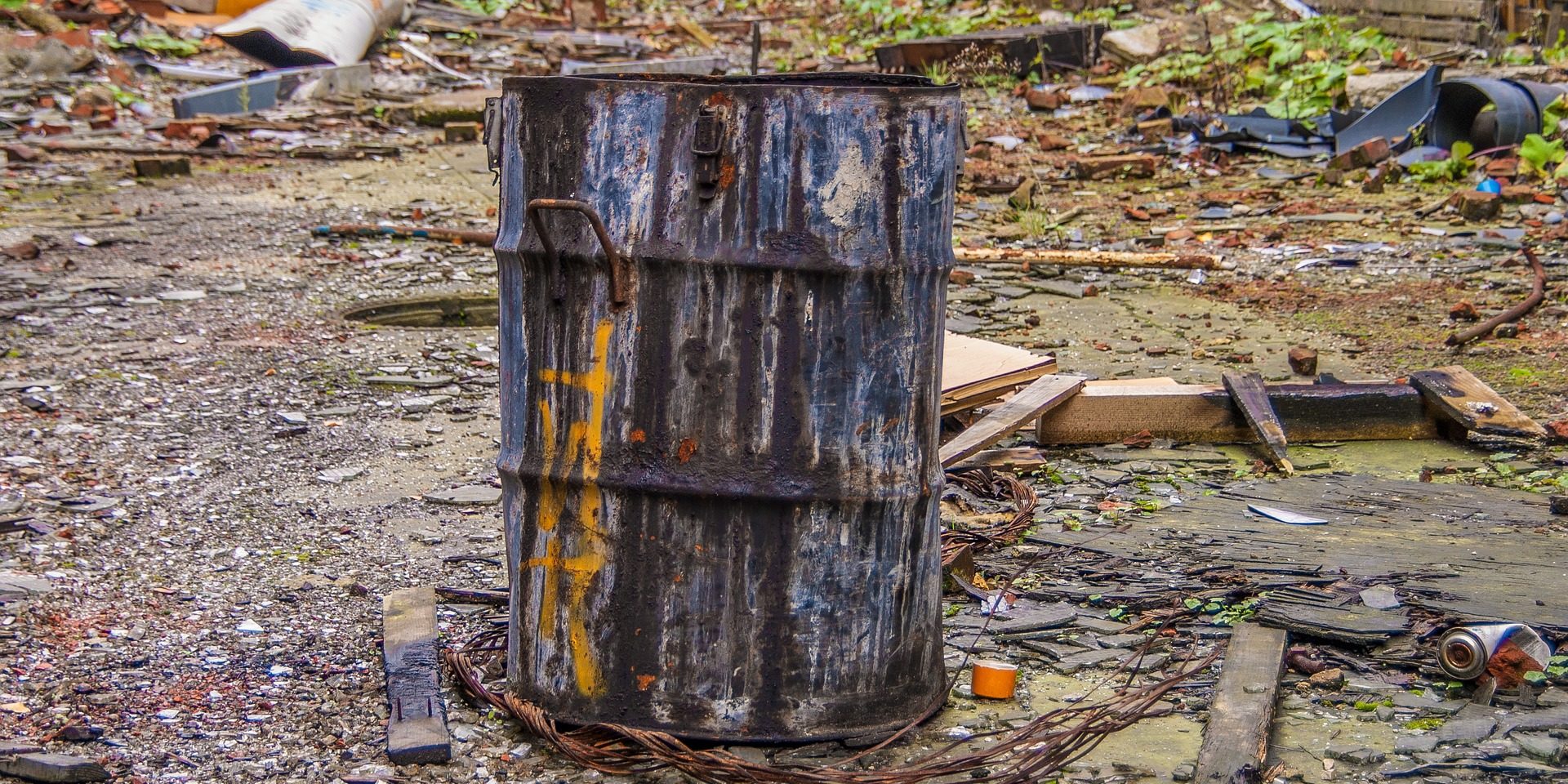Not all waste can be disposed of at your local recycling centre – hazardous and toxic waste has to be removed, transported and disposed of safely and in accordance with UK legislation.
Vacant property and sites can often harbour hazardous waste. Waste is generally considered hazardous if it (or the material or substances it contains) are harmful to humans or the environment.
For example, buildings constructed between the 1950’s and late 1990’s contain hazardous waste, since asbestos was widely used as an insulation and fire proofing solution. It is still found today in many buildings, including homes, schools and hospitals. If disturbed, it can be a killer and causes around 5000 deaths every year. It requires specialist removal and disposal and should NEVER be removed by the owner.
Types of Hazardous Waste
- Chemicals, e.g. brake fluid or print toner
- Batteries
- Solvents
- Pesticides
- Oils (except edible ones), e.g. car oil
- Equipment containing ozone depleting substances, e.g. fridges
- Hazardous waste containers
Other forms of hazardous waste include human waste, needles and sharps.
Generally, older residential properties and commercial units suffer with the use of asbestos during construction; Business waste including construction, demolition, industry and agricultural waste should also be dealt with responsibly.
Duty of Care
All businesses have a duty of care to ensure they act responsibly when dealing with hazardous waste. It is paramount that the following are done:
- Check if your waste is hazardous or non-hazardous, so you can have it removed correctly.
- Store any hazardous waste, ensuring the site is a registered premises to store hazardous waste.
- Hire a company that is fully licensed and registered to collect and dispose the waste for you. (Check they have an environmental permit).
Storing Hazardous Waste
Knowing how to store your waste safely before disposing is also important.
- Store waste in a secure place.
- Use suitable containers to stop waste escaping.
- Label containers clearly with what is inside, and display written instructions for storing and disposing.
- Keep liquids away from drains and protect and check regularly for leaks.
Producers & Holders of Hazardous Waste
You must follow these steps in England if your business:
- Produces hazardous waste.
- Holds or stores hazardous waste.
- Has hazardous waste removed from its premises.
The steps are:
- Registering your premises, unless you’ll produce or hold less than 500 kilograms of hazardous waste there in any 12-month period.
- Classifying your waste to check if it’s hazardous.
- Separate and store hazardous waste safely.
- Using authorised businesses to collect, recycle or dispose of your hazardous waste – check that waste carriers are registered and waste sites have environmental permits. Your licensed waste carrier can look after the final two steps, which are filling in the consignment note correctly (which must stay with the hazardous waste until it reaches the registered disposal destination) and keeping a record of the waste (known as a ‘register’) for 1 year.
There are also other forms of hazardous waste such as clinical waste, sharps waste and human waste, all of which can be cleared legally and professionally by Secure Site UK, licensed by the Environment Agency, to clear, transfer and dispose of hazardous waste.
You can rely on Secure Site UK’s experienced teams nationwide to deal with your waste safely.







